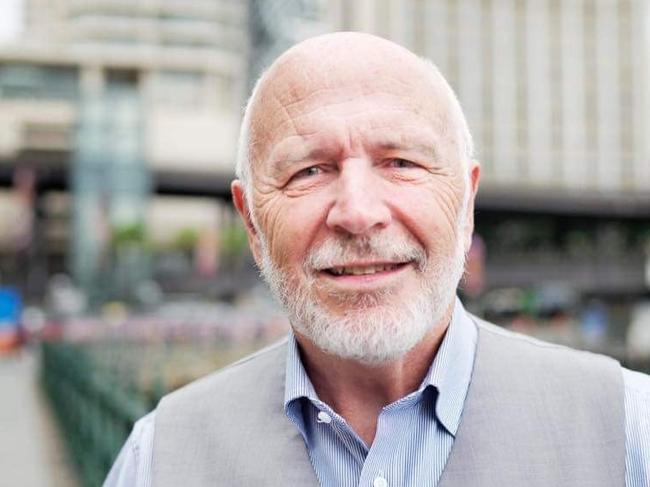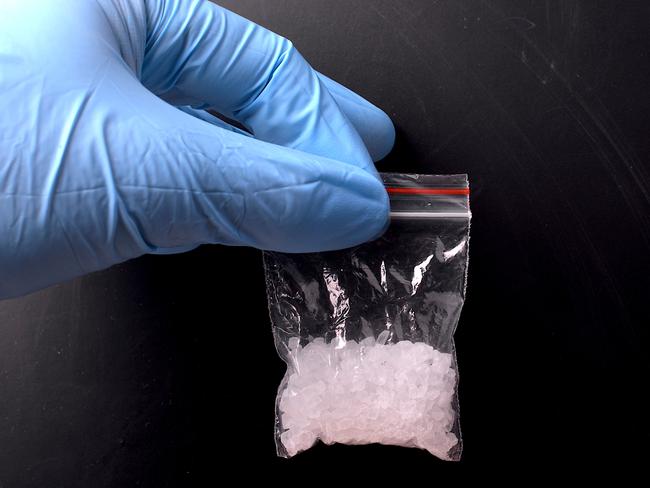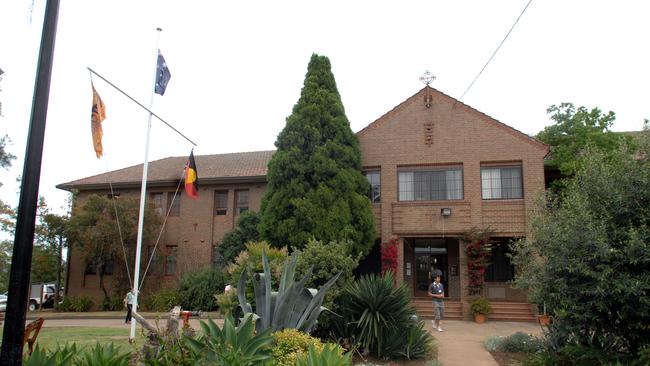Sydney businessman Mark Hancock pushes for drug reform after beating ice dependency
Mark Hancock was a doting grandfather, had never used drugs, and was a social drinker but an affair with ‘Tina’ - the code name for methamphetamine - nearly destroyed his life.
NSW
Don't miss out on the headlines from NSW. Followed categories will be added to My News.
Mark Hancock was a successful businessman, had been general manager of the Legal Aid Commission and was a devoted grandfather – but an affair with “Tina” nearly destroyed his life.
“Tina” was a code name for methamphetamine – also known as ice – that was offered to Mr Hancock by like-minded business professionals.
They told the 63-year-old Tina could help him work harder, faster and for longer periods. What they didn’t tell him was that Tina was highly destructive.
“I was pretty burnt out when it started and I didn’t realise what I was taking,” he said.
“I’m sure I’m not the only person in that situation.”
Mr Hancock had never touched drugs before he started using ice and was just a social drinker. But the drug quickly took hold and he would use it during the week while staying in a city apartment for work.

His changing personality, hallucinations and paranoia ultimately tipped his family off to his dependence.
“When I finally imploded and my family became aware, they held an intervention,” he said.
“They picked me up and whisked me off to a private rehabilitation centre.
“I was one of the lucky ones.”
Mr Hancock is not what most people would see as the image of an ice addict, which is exactly why he has decided to speak out.
“People are often quite amazed that someone who lived the life I had could suddenly find themselves dependent on ice,” he said.
“But life unfolds, you turn corners and, before you know it, you can be in the wrong place.
“It is not a conscious choice and there is no stereotype.”
During his career, Mr Hancock was involved in the Nagle Royal Commission into NSW Prisons, which examined the management of prisons across the state.
At one point during his addiction, Mr Hancock ended up in jail, which gave him the rare insight into both sides of the criminal justice system.
What he experienced inside both disappointed and shocked him – there was no help or programs offered for those suffering with drug dependence, instead he said they were taught how to “safely” share a syringe.

“I was disappointed to find there’d been a dismantling of education and support programs and people were not well-equipped to resume life in society,” he said.
“Jail is about the deprivation of liberty but instead people are brutalised inside.”
Now a member of the Fair Treatment Campaign and a director of Unharm, Mr Hancock said his experiences were evidence the state’s drug laws needed an overhaul, starting with treating drug dependence as a health issue, rather than a criminal act.
“Harm minimisation and wellbeing should be the approach taken, not arrests and criminal records,” he said.
“If you present to an emergency department with appendicitis, you are admitted to hospital and treatment starts.
“Substance dependence is different but nonetheless you have a condition that requires assistance.”
Mr Hancock noted that outside the correctional system, the state had great rehabilitation options – but that there were nowhere near enough, particularly in regional areas.
He also blamed “politicisation” on the government’s delay in responding to the recommendations set out following the inquiry and urged politicians to step up.

“It’s outrageous – and I’m stumped as to why it’s taken this long when this could get people on the road to recovery,” he said.
He also slammed the refusal of five key recommendations, which included pill testing, safe injecting rooms and needle and syringe programs in correctional centres.
“The government knows that drug use is happening in jail, they know inmates are using syringes,” he said.
“Why wouldn’t you, in recognition of the fact they are used, why wouldn’t you change that?”.
LAWYER SAYS LAW’S ‘NOT WORKING’
A criminal lawyer says the state’s drugs laws “clearly aren’t working”, and that a health-focused approach to substance abuse is needed, as the number of people charged in relation to the drug ice continues to rise across NSW.
Matt Ward, a criminal lawyer and partner with Morrisons Law in Wollongong has questioned why the recommendations passed down following the ice inquiry are yet to receive a response from the state government, as rehab centre wait times blow out and treatment programs fill up.
In NSW possessing a prohibited drug carries a maximum penalty of two years jail, and Mr Ward said what was “even more concerning” in his view, was that possessing equipment used to administer drugs carried the same term.

“This is not to say that people always receive these maximum penalties, but perhaps goes to show how the justice system has attempted to address drug use and possession,” he said.
“In my view, this is clearly not working and hasn’t for some time.
“A focus on drug use as a health and social issue, can have a huge positive impact on people, families and the wider community.”
Criminal charges related to amphetamines have risen by 10.5 per cent from 2017 to 2021 – which means more people before the courts.
Mr Ward – who predominantly works in the Wollongong area – said when someone with drug addiction appears before the court, options for programs, treatment options and alternate sentences are limited.
“What we are trying to do, from a social and health perspective, is ensuring the person doesn’t come before the court in the first place, let alone multiple times,” he said.
“The current program providers do what they can with what they have. However, they appear to be under-resourced and can often only limit the services available.”
One program offered by the court for a person battling substance abuse issues is the MERIT program – which gives people access to a wide range of alcohol and other drug treatment services for 12 weeks while court matters are adjourned.
However, the program is only available to offenders if they have committed certain types of offences and are located within certain geographical areas.

NSW also operates a Drug Court – which provides alternatives to prison for people who have drug issues – but again, it is only available in certain areas.
Rehabilitation centres are also overrun with clients – with wait lists blowing out to between three and six month in many cases.
“So two people in NSW may commit the same offence, have similar drug issues, but the programs available to them are completely different based on where they live,” Mr Ward said.
“The courts will try and promote rehabilitation where they can, but the justice system is not designed to properly treat an underlying drug issue.”
Mr Ward said these programs needed to be extended – but said there was also a case to be argued for the decriminalisation of drug possession in NSW.
“In NSW, if you meet certain criteria you can receive an infringement notice for possessing a prohibited drug, while this might sound like a small issue, diverting someone away from the criminal justice system, especially at a young age, can be a positive thing for their future,” he said.
“In my experience, NSW Police don’t use these infringement notices often and we continuously see people charged with possessing small quantities of prohibited drugs before the courts.”
A correctives officer, who wished to remain anonymous, said jails could often be the worst place for someone with an ice addiction, with drugs easily available, and treatment programs unable to keep up with demand.
“Those requiring assistance far outweighs services available,” he said.
“(We) need real addiction treatment in custody. It needs some legislation to entice inmates to commit to programs, such as parole not being considered until they have successfully completed the course or committed to counselling.”



